Life is a bitch and then you play cards; even with a crappy hand. The type of the card game is a variant on Utopianism and the odds of beating the house are slight indeed. Luis Bunuel startled filmgoers with the ferocious imagery of a film called “Viridiana” , a commercially successful film that followed other powerful films like “Le Chien Andalou” ( 1929) , “Land Without Bread” (1932 ), “The Young and the Damned” (1951) and “The Exterminating Angel” ( 1962) among others. There is a discomfort that the forces of darkness await us all. Despair and pessimism is the suggestion of any higher aspirations of would be saints: virtue is thrown back in their face. There is a belief, a strand of Marxism leavened with the humanism of Martin Buber that the world cannot be ostensibly changed and that acceptance of things as they is the only course of a action. Films will not raise human consciousness, but may provoke and entrench what it meant to delegitimize.

The way the story unfolds is like the progress of a dream. Viridiana’s close resemblance to her aunt sounds like the “you were there, but you weren’t you” episodes that friends often hear from dreamers. Viridiana’s dress-up date with her uncle reveals incestuous impulses in her as well, to come to full flower by the end of the dream.
Inspired by a painting of a little known saint and an old erotic fantasy about making love to the queen of Spain while she was drugged, Buñuel in “Virdiana” constructs his most coherent film about spiritual idealists, who are eventually crushed by human folly. In hindsight, it’s difficult to imagine how such a simple film was so misunderstood in its time, but that answer seems imbedded in its sophistication, and multiple sub-plots in a contradictory co-existence that serves as structure for the narrative tension.
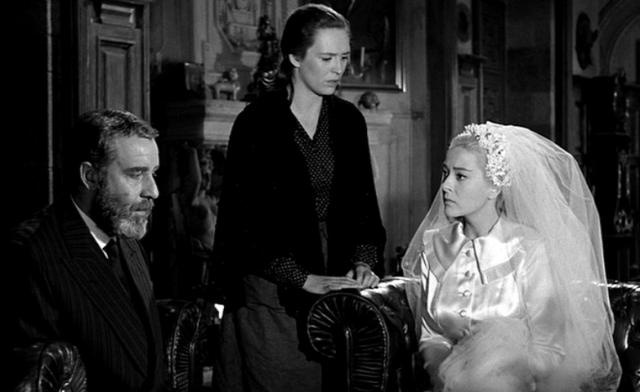
----If the charge of blasphemy has today lost its kick, what makes Viridiana such an enduring shocker? The discomfiting currents of necrophilia and incest are made all the more effective for their overt subtlety—like the greatest of storytellers, Buñuel is a master of hiding things in plain sight. The timeless look of the film encourages us to accept the primarily sexual nature (albeit one-sided) of Viridiana’s relationships with her uncle and cousin, but this isn’t 17th Century Spanish royalty here, this is 1961. And even though the script (which Buñuel admits was altered to adhere to production codes) takes pains to demonstrate that neither man is blood-related to her, the fact that her only two living family members are so vocal about their determination to have sex with her is terrifying in the manner of Polanski’s horror trilogy—namely, it raises paranoid anxieties that home and family are infinitely more dangerous than strangers and the outside world.----
Bunuel’s pessimistic despair seems closely related to Walter Benjamin’s leftist critique between the dominant positivist humanism that promises utopia and the nagging dissent of the negativists: ” Most central to Benjamin’s project is the critique of allegory, understood as a real religious position. In a surrealistic manner his position is close to the Cabalistic, lacking a positive religious faith. His pessimism discloses the presence of violent conflict between two tendencies: a positive optimistic utopian tendency and a pessimistic – the latter culminating in a negative utopianism and merging into the tradition of thought … of redemption. His pessimism discloses the presence of violence within the continuity of “the whole time everything is the same” as a cosmic fate, a fate grounded in mystic necessity. He regards reality as essentially tragic, yet not as a partial historical stage or as an accident, but as normality itself….
…”The tradition of the oppressed teaches us that the ‘state of emergency’, in which we live is not an exception, but a rule.” The fact that “everything continues as usual” is the eternal “catastrophe,” which according to Benjamin discloses the boundless dominance of the mythical. This is the basis of the “Kafka-like situation,” which determines the subject as described in the article “Franz Kafka.” The “original sin” makes itself present at each moment in history, and according to Benjamin it turns out to be a reaction to the subject’s being a victim of cosmic injustice permanently directed against him.
…A great many directors, when asked to name their favourite film-maker, invoke the name of Luis Buñuel. It isn’t surprising, since he was undoubtedly a genius who had the invaluable capacity to offend and delight at the same time. You could choose any of a dozen of his films as one of the best one hundred; with ”Viridiana” often the choice, since it caused the maximum annoyance to people one is quite pleased to see offended.
It was made in Spain in 1960 after Franco had told his minister of culture to invite the country’s leading film-maker back from exile in Mexico to make whatever film he liked. But once he completed it, Bunuel sensibly decamped, deliberately leaving a few out-takes behind to be instantly burned by the authorities.
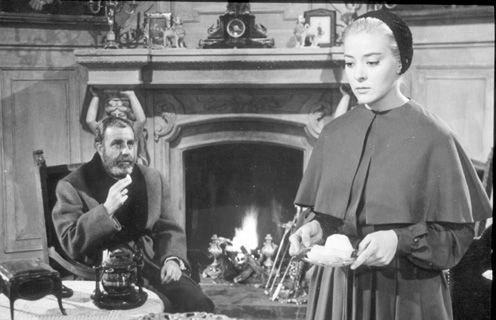
---There’s an understated perversity running through the film that complements the set-pieces well, as with Don Jaime trying on his wife’s wedding shoes and corset, or his servant’s daughter skipping below the tree from which Don Jaime hangs himself (with the skipping rope he bought for her). ‘Don Jaime liked to watch me skip’ she says. You get the feeling that Don Jaime in his death has a smile on his face. Objects too travel through the film along with people: the skipping rope that is a means to look at a young girl’s legs becomes a noose and then the cord for a pair of beggar’s trousers. Buñuel has the capacity to make the smallest details indecent too, as when Don Jaime’s son Jorge puts his fingers into a tiny jewelled purse after he has talked about his attraction for Viridiana.---
Viridiana has many virtues, and the greatest of these,as mentioned, in almost all of Bunuel’s films, is the power to disturb. The heroine, named after a saint, is a chaste woman who wishes to perform good deeds. Seeking to repent for a sin for which she blames herself, she gathers a collection of disgusting and cynical beggars around her, hoping her charity will save their souls. Bunuel was educated by Jesuits, much like Alfred Hitchcock, and his films are centered around the interplay of the trinity of eroticism, religion and death. His obsessions and imagery have always been intentionally provocative: Sex without religion is like an egg without salt. Banned in Spain and denounced by the Vatican, Luis Buñuel’s irreverent vision of life as a beggar’s banquet is regarded by many as his masterpiece in a clear example of anti-narrative and anti-allegory to da Vinci’s Last Supper.
rn vz.expand(this)" href="http://www.screenmachine.tv/2010/09/10/sydney-underground-film-festival-day-1-south-of-the-border-un-chien-andalou/">
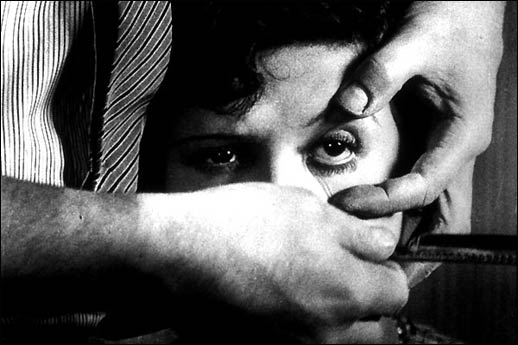
1928.UN CHIEN ANDALOU




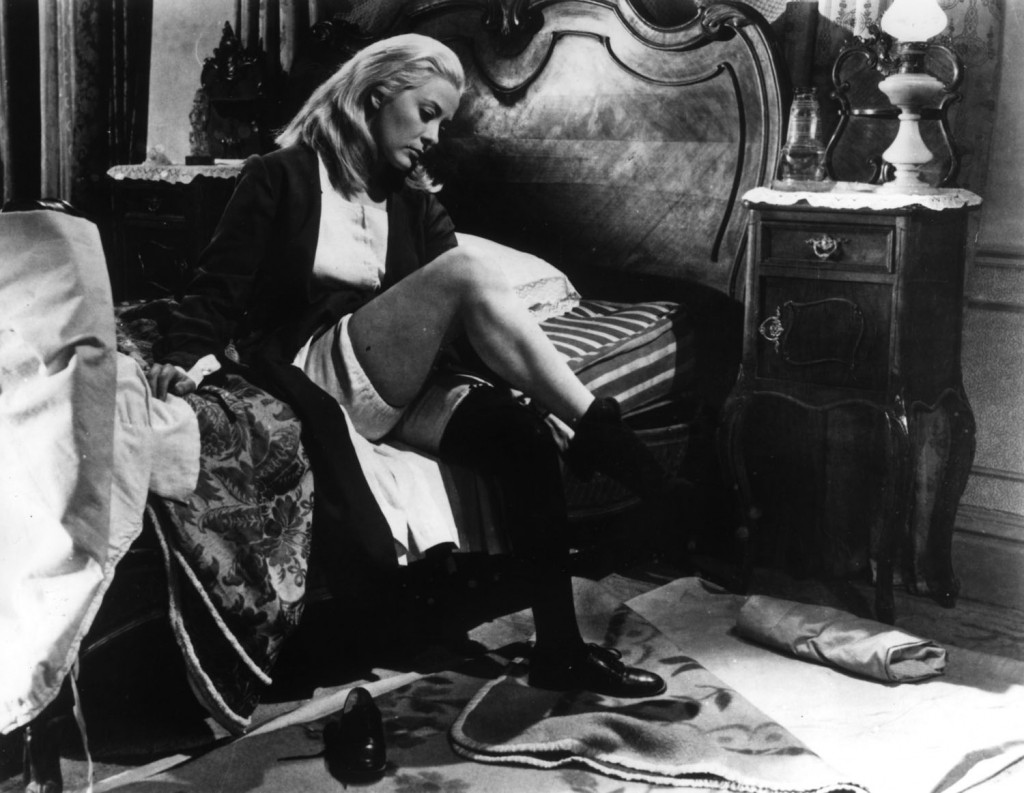
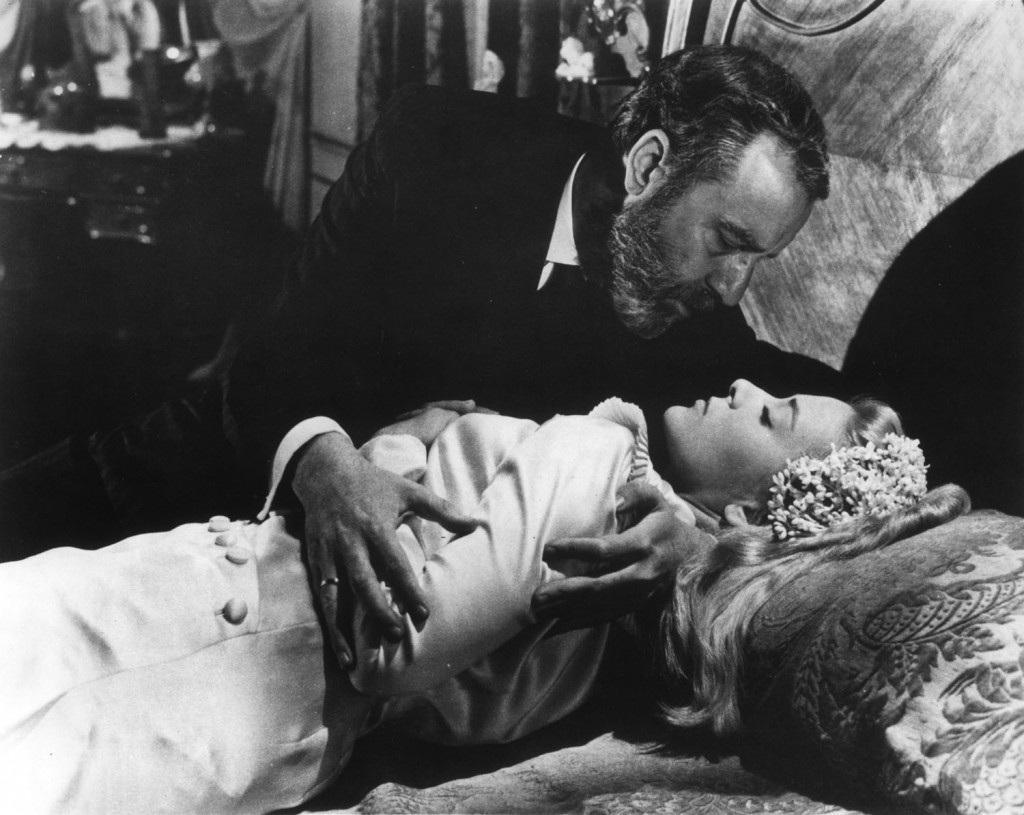
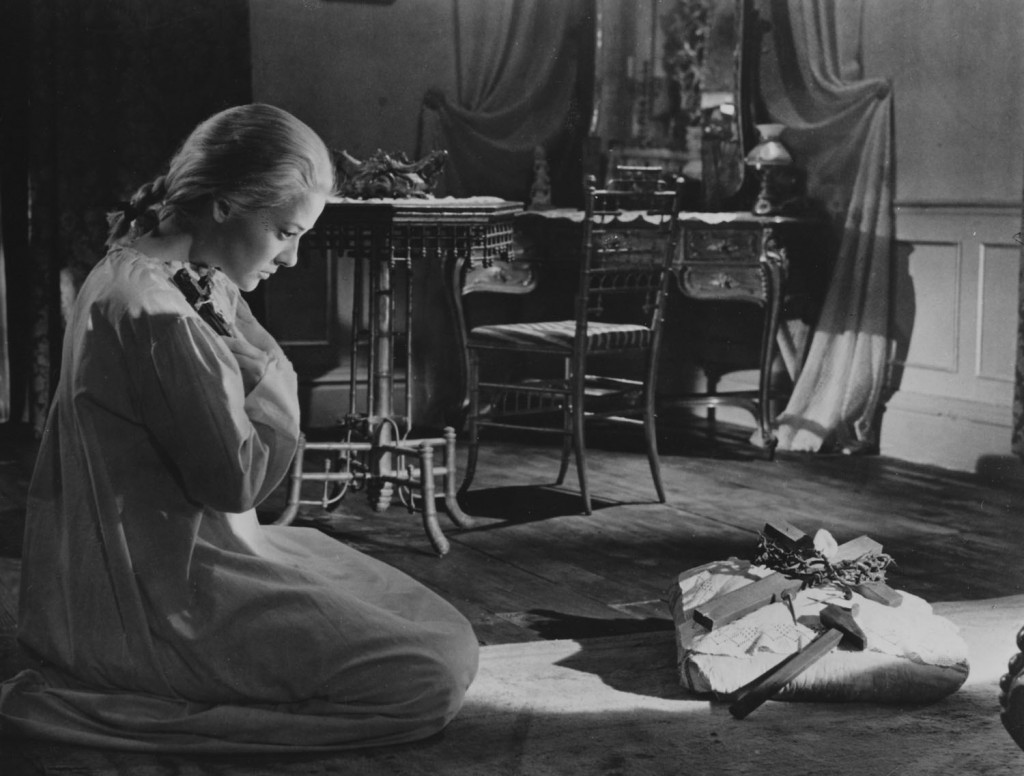




 COMMENTS
COMMENTS




That scene of the banquet/revolt of the beggars is great, terrible; it is said that in order to love the poor, you must not be too near to them, bc are uneducated, thieves,noisy, dirty; but things change, even slowly, Russia is much better today than a century ago. Great movie Viridiana, as many others from Buñuel, like Belle de Jour or Discreet Charm of Bourguoisie.
I recommend you a spanish movie where the struggle between Apollonians and Dyonisians is one of the topics: “Bearn or the living-room of the dolls” with Fernando Rey and Angela Molina,both present too in Discreet Charm etc.excellent spanish actors, directs Jaime Chàvarri.(1983).
Fun to be characters in the movie are absolutely Dyonisians, and there I heard a line I have never forgotten: “Only paradises that exist are lost paradises.”
Thanks so much for your comments. your cultural knowledge is so wide ranging; I am fortunate to come across subjects that you can relate to and contribute additional context. Best